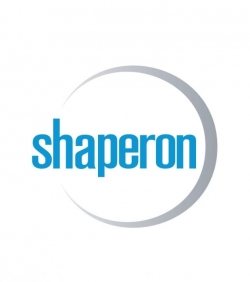Passed the technology evaluation for KOSDAQ listing

Dysregulated inflammasomes are associated with an enormous number of autoimmune and inflammatory disorders including Alzheimer’s disease. Inflammasomes are intracellular multi-protein complex in the innate immune system. Activated inflammasomes produce highly pro-inflammatory cytokines and induce the programmed cell death called ‘pyroptosis’.
Shaperon, headquartered in Seoul, is a clinical-stage biotech company developing novel inflammasome inhibitors. Shaperon’s inflammasome inhibitor, ‘HY209’ (a bile acid, taurodeoxycholic acid), has novel mechanisms of action called ‘GPCR19-P2X7 modulation’. It suppresses multiple proinflammatory cytokines and chemokines by inhibiting both the priming and activation phases of inflammasome pathway, unlike conventional inflammasome inhibitors which suppress only the activation phase of inflammasome. It targets ‘GPCR19’ (G-protein coupled receptor 19) also known as ‘GPBAR1’ (G-protein coupled bile acid receptor 1) or ‘TGR5’, a major regulator of the inflammasome activation.
In the field of drug development for Alzheimer’s disease (AD), targeting beta-amyloid or hyperphosphorylated tau has been the mainstream of interest. However, Shaperon’s approach aims at halting the microglia-mediated neuroinflammation. Targeting neuroinflammation, the company is currently developing an oral formulation of HY209 (named ‘NuSepin’) with its proprietary technology, while preparing for the phase 1 clinical trial for the treatment of AD.
In the pre-clinical studies with the 5xFAD mouse models, HY209 evidenced the increased expression of GPCR19 in microglial cells which had been down-regulated in AD, and the reduced expression of inflammatory P2X7. Thus, HY209 inhibited the inflammatory signaling pathways, leading to the suppression of neuroinflammatory cytokine and chemokines. Furthermore, it reduced the AD pathology including beta-amyloid and microgliosis and rescued the AD mice from the cognitive dysfunction.
On November 12th, Shaperon announced that it passed the technology evaluation. To get listed on the Korea Securities Dealers Automated Quotation (KOSDAQ), a biotech company must go through the process called ‘Special Technology Assessments Track’ by two professional evaluation agencies designated by the Korea Exchange (KRX). Shaperon had applied for the technology evaluation but failed to pass it last year. However, the company received ‘Grade A’s from the both of agencies this year.
Next step is to pass the preliminary review by the KRX before KOSDAQ listing. Then hopefully, the company can move on to the initial public offering (IPO) process in the first half of next year.


